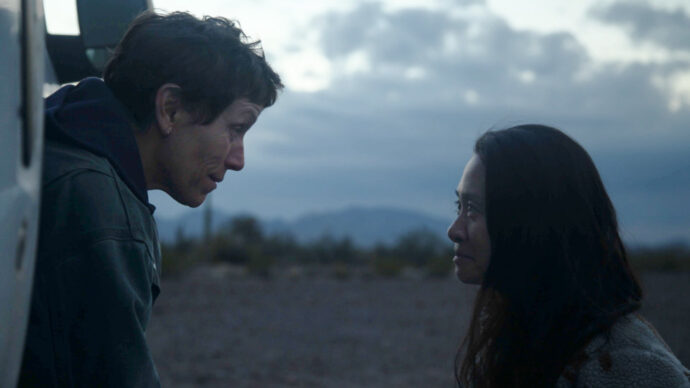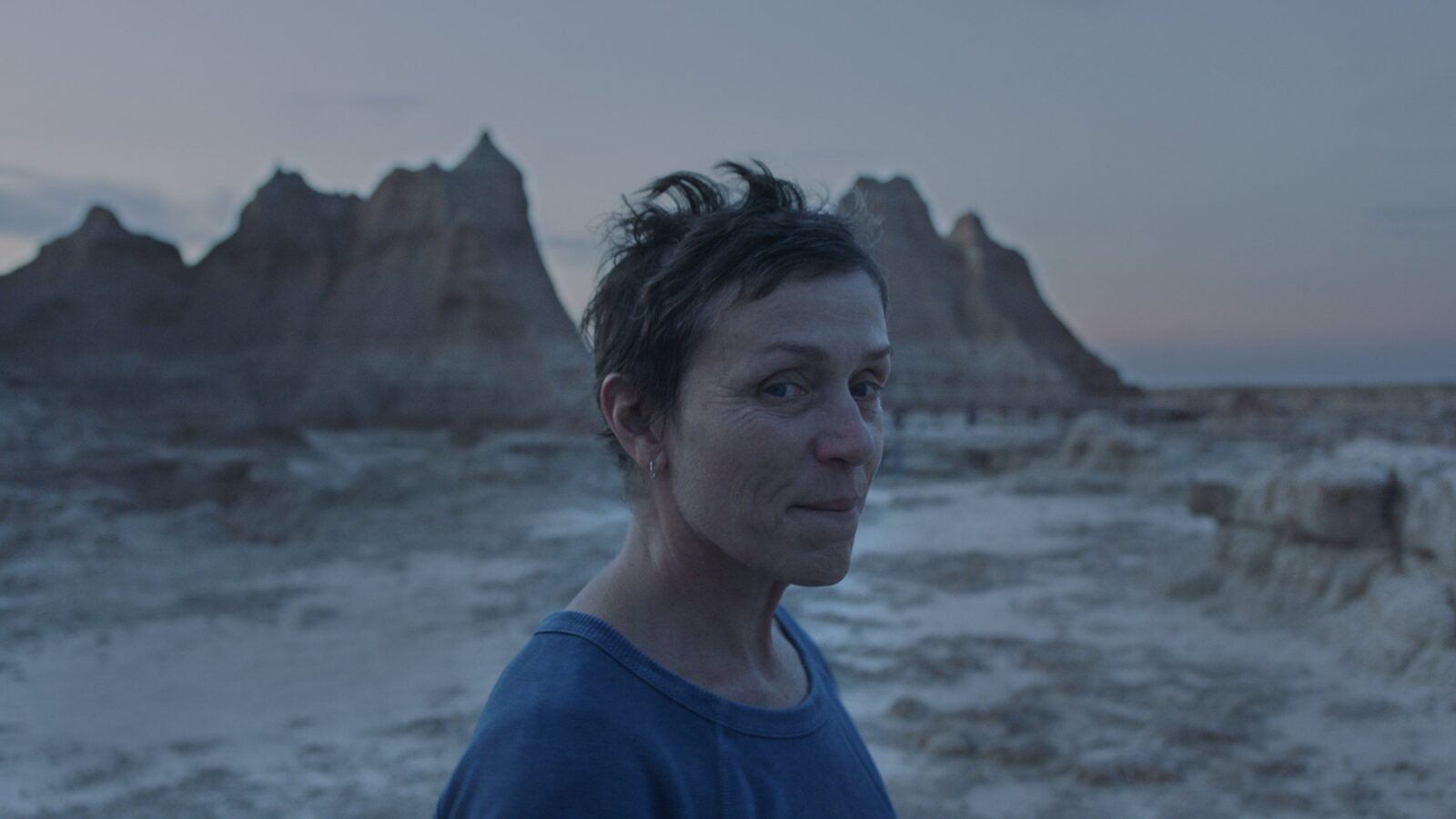The Great Recession is one of those events that leaves scars. Jobs were removed, money grew tighter, and lives were upended. Personally speaking, I honestly feel lucky compared to what millions of others went through.
However, a lesser-talked detail from the Recession is the resurgence of nomads, people with a van for a home and travel from place to place. In Chloe Zhao’s Nomadland, we follow a woman named Fern, played by Frances McDormand. The closure of the town’s Gypsum plant forces her out of a job and into the nomad lifestyle.
It’s through Fern’s journey we see what it means to be the nomad. The negative sides of living on the road. The relationships you can only briefly maintain. And how to deal with these restrictions and learn more about yourself. Self-discovery is what director Chloe Zhao uses as a focus for the basic premise. And with Nomadland, we have a very layered, very natural, very human film.
The Beauty of the Desert Landscape
If there’s one thing that makes Zhao’s film so spectacular, it’s the film’s sense of naturalism. This is best shown through the camerawork by Joshua James Richards. The Midwest desert landscapes are gorgeous, helped by the natural sunlight. Zhao is proud about this, because there’s so many long takes that just show Fern breathe and enjoy what little good comes from her life new.
There’s a grand scope to the cinematography, as if Fern is exploring uncharted waters. And even outside of that, so many shots are filled with character and personality. Just moments of Fern talking to other people can give so much visual eye candy as the camera moves gracefully across the road.

The Struggles of a Broken System
Nomadland is visually impressive to look at for sure. All the while, there’s plenty of heartfelt and happy moments shown from the perspective of a nomad. The open road, the unique people one meets, and the incredible sights and sounds. But Zhao does acknowledge the downsides and the reasons for this downfall.
The film is clear in establishing the loneliness and frustrations that come from a nomad lifestyle. Fern loses a lot and the people she meet have baggage, insecurities, and frustration. There’s a strong undercurrent of sadness, as the film subtly shows how the Recession changed people’s lives. Some of it for the better sure, but most of it for the worse.
But the film is not a tragedy. Rather, it’s a melancholy piece. There’s moments of frustration, loss, and uncertainty wrapped into sporadic moments of connection, excitement, and humanity.
Really, Chloe Zhao makes the film feel real. From the simple, dialogue-heavy writing to the naturalistic lighting, Zhao gives so much depth, realism, and heart to the piece. The conversations feel real. You feel as if you are in each setting. It helps give the film a bigger punch, as we find ourselves in Fern’s shoes, traveling across America and trying to get through a tense, depressing situation.
To Sum Up…
It is that sense of true adventure that makes Chloe Zhao’s Nomadland work. Zhao knows how to tackle this story and show the lives of these real people. It’s one that hides itself through some spirtied moments, while also acknowledging the loss and guilt that came over many upon the Great Recession. Zhao frames each shot with pure beauty and grace, while also allowing a cast of talents and first-time actors to breathe and talk like real people.
Nomadland is a pretty simple film by all accounts: a woman who loses everything finds new life on the road. But through so many layered sequences, as well as a smartly-laid script from Zhao, it excels as a melancholy road film with a lot of moving parts and memorable characters. Its numerous awards are there for a reason.
Read some of my other Hulu reviews here
